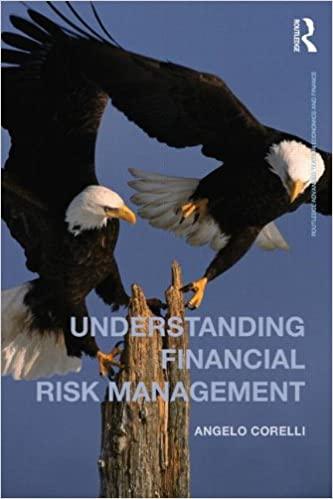Question
Scenario: Your team has been hired to provide financial analysis for a start-up company, Bobble in Style, which produces customized bobble heads. The bobble heads
Scenario: Your team has been hired to provide financial analysis for a start-up company, Bobble in Style, which produces customized bobble heads. The bobble heads are made out of less rigid materials and are more true to life than those of competitors. The company inventors, Mr. and Mrs. Lee, are going to pitch their idea to Shark Tank in a few months, but first they need to have a better understanding of the business financials. The Lees are already creating and selling their product from their home-based office and work area. They know what costs are involved with making the bobble heads on a small scale, but they dont have an understanding of financial figures beyond basic costs. They need you to make sense of various financial figures for them.
1. Financial Statements: Develop an Income Statement, Cash Flow Statement, and Balance Sheet based on the provided data for year 20XX (the previous year) that follows. Explain the purpose of each financial statement.
a. Income Statement Data for 20XX:
* Gross Sales = $33,291
* Coupons and Discounts = $549
*Cost of Goods = $10,276
* Labor = $0 (Mr. and Mr. Lee were the only ones working and did not pay themselves)
* advertising fees =$2000
* bank fees = $120
* phone/internet = $1200
* shipping = $1380
* utilities = $900
* office supplies = $785
* Income tax = 26 %
B. Cash Flow Statement Data for 20XX:
* Cash in bank = $21,120
* Depreciation = $800
* Proceeds from disposal of investment = $3,000
* Capital Expenditure = -$1,600
* Repayment of Bank Loan = -$5,000
* Interest Expense Associated with Bank Loan = -$345
* Consider any data relevant from the income statement.
C. Balance Sheet Data for 20XX:
* Cash = $21,120
* Accounts Receivable = $496
* Accounts Payable = $200
* Inventory = $10,507
* Accumulated Depreciation = -$1,000
* Common Stock = $0
2. Financial Ratios: Calculate the following financial ratios and explain the meaning of the results.
a. Net Profit Margin
b. Quick Ratio
c. Debt-to-Equity Ratio
3. Cost Classification: The Lees have provided you with the following costs and relevant information that are assumed for year 20XY. Classify the costs as variable costs or fixed costs. Explain the importance of distinguishing between variable and fixed costs. If business is expected to be steady from month to month, provide a monthly budget based on these figures.
a. Advertising Fees = $4,000
b. Labor = $400/month
One part-time employee will be hired to take care of packaging and shipping. This employee will be paid $10 per hour. He or she is estimated to work 40 hours total per month.
c. Packaging Supplies = $3,000
d. Office Supplies = $800
e. Phone and Internet Service = $115/month
f. Product Supplies = $9,000
g. Shipping Fees = $1,000/month
h. Conference Exhibitor Fee = $3,000
i. Travel Expenses for Conference (e.g. airfare, meals, taxi) = $1,200
j. Utilities for the Home Workshop = $105/month
4. Net Present Value: The Lees are considering adding a new piece of equipment that will speed up the process of building the bobble heads. The cost of the piece of equipment is $42,000. It is expected that the new piece of equipment will lead to cash flows of $17,000, $29,000, and $40,000 over the next 3 years. If the appropriate discount rate is 12%, what is the NPV of this investment? Explain the findings.
5. Budget Preparation: The Lees believe that there production could quadruple in one month after being on Shark Tank. They want to be prepared for this. Based on the monthly budget calculated above, create a new monthly budget for quadrupled production. Assume that 70 units were produced in the first budget and 280 units will be produced per month with the new budget.
6. Incremental Analysis: If production does increase dramatically after their presentation on Shark Tank, the Lees will need more space for production. They have two options. Option 1 is to rent out a spacious warehouse nearby. If they pursue this option, there rent will be $1,200 per month and utilities are estimated to cost an additional $350 per month. Their second option, Option 2, is to rent a smaller storefront space that is also nearby. The storefront rent is $1350 per month. However, utilities will likely only cost an additional $150 per month. They want to compare their options over one years time (since each rental contract is a 1 year commitment). What is the incremental analysis if the Lees choose Option 1 over Option 2?
7. Break-Even Analysis: You have been asked to calculate how many units need to be sold to break even, based on the costs provided in task #3. Assume that only one conference will be attended and the estimated expenses associated with this conference are on target. Also assume that the value for total units per year is based on sales of 70 units per month. Therefore total units sold per year are 840. The selling price per unit is $79.
8. Contribution Margin: Based on the Break-Even Analysis just performed, what is the contribution margin per unit?
Step by Step Solution
There are 3 Steps involved in it
Step: 1

Get Instant Access to Expert-Tailored Solutions
See step-by-step solutions with expert insights and AI powered tools for academic success
Step: 2

Step: 3

Ace Your Homework with AI
Get the answers you need in no time with our AI-driven, step-by-step assistance
Get Started


